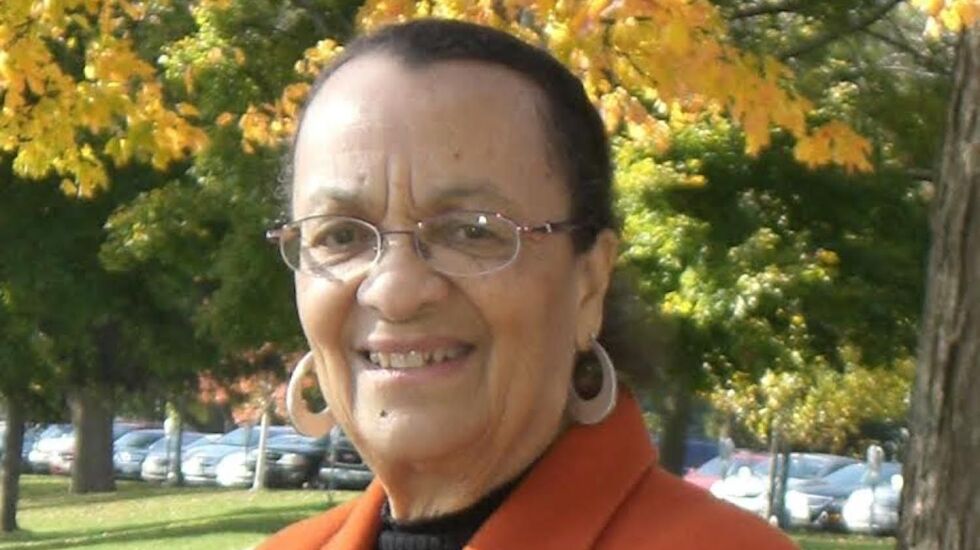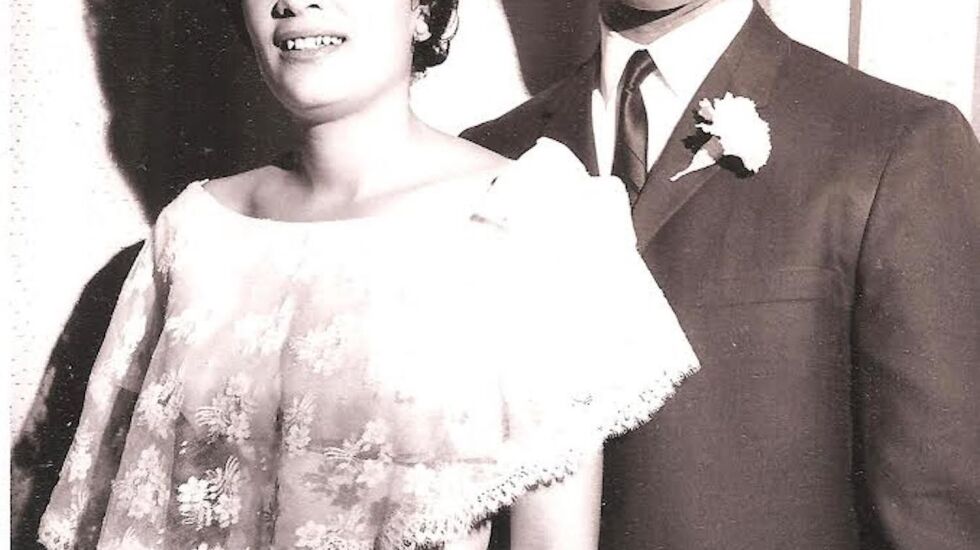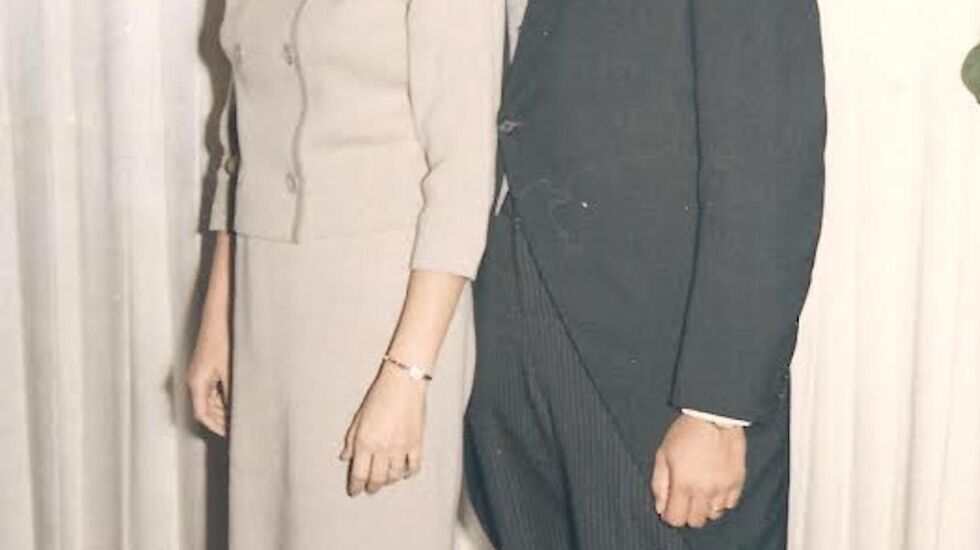
In the 1970s, Steven Bowman was a student at St. Ignatius High School who was interested in pursuing a career in medicine.
That’s where Maxine Duster came in. She encouraged him to apply for a program that paired Black students with Black doctors. The experience gave him an adrenaline-filled night as he followed a physician around the old Cook County Hospital.
“They put me to work,” Bowman said. “I was helping do a gastric lavage on a guy that had gastrointestinal bleeding, putting a tube in his nose and push water into it, irrigating his stomach.”
After graduating from the Washington University School of Medicine, “I came back to County. I worked there 30 years in emergency medicine,” said Bowman, who’s now medical director of the Illinois Department of Corrections.
He said that, thanks to Mrs. Duster, “I had all these other great things happen.”
Mrs. Duster, 83, a Chicago educator and civic activist, died Oct. 26 at a memory-care center in Rockford, according to her daughter Michelle Duster.
Dr. Darryl L. Fortson said she also connected him with Black doctors at what’s now Stroger Hospital when he was a 15-year-old student at St. Ignatius.
“It was a fantastic experience,” he said. “We wore white coats, and we were just following physicians like a school of fish.”
“She saved a lot of lives,” Fortson said. “Not only the people in medical fields who are forever in her debt but all the people we cared for.”
Fortson said the program was part of the women’s group Chicago Focus, an anti-racism organization that Mrs. Duster helped lead. In the late 1960s, it lobbied department stores to hire Black salespeople and to display Black mannequins.
She also pushed for Black hires at Illinois Bell and Peoples Gas and served on the boards of the Chicago Child Care Society and the Harold Washington Foundation as well as advisory committees promoting Black achievement and exhibitions at the Art Institute of Chicago and the Museum of Science and Industry.
Mrs. Duster was born in Pelham, Texas, a tiny enclave founded by formerly enslaved people. At one time, its Black farmers owned 6,000 acres on which they raised cotton and cattle, according to Connie Hicks, Mrs. Duster’s cousin and a curator with the Pelham Community History Museum. She said the town’s population — now about 35 people — peaked at 400 in the 1930s and 1940s.
Mrs. Duster was related by blood or marriage to all her playmates, elders and teachers, Michelle Duster said. The kids felt safe running from house to house to play and drink lemonade.
“She would go to her grandmother’s house, and they would have cake, and they would ride a horse called Paint,” her daughter said. “She had pet chickens.”
Young Maxine loved listening to “The Lone Ranger” radio show and to her great-grandfather’s ghost stories, according to an interview she did with the online site The HistoryMakers.
“The town was all about family,” Hicks said. “During segregation, we depended on each other. Pelham had its own post office and our own school and cotton gin, and we had a bank and store. I think everyone who grew up here got this instilled in them — that they were somebody.”

Mrs. Duster looked back fondly on her childhood. She helped organize reunions that brought people back to Pelham, connecting former residents and their descendants from around the country.
She and all five of her siblings attended college. She went to Texas Southern University.
“Max” followed a cousin to Chicago, where she got a master’s degree in communications from Governors State University and a master’s in human resources management from National Louis University.

And she met Donald Duster, a business executive and grandson of anti-lynching crusader Ida B. Wells, a journalist and founder of the NAACP. They were married from 1962 until his death in 2013 and raised their family in Calumet Heights.

In the 1960s, Mrs. Duster began teaching at Morgan Park Academy, and later she taught at Caldwell grade school. In the 1980s, she was community relations manager for Michael Reese Hospital and served on a commission monitoring school desegregation. She went on to work for the Chicago Urban League, where she developed a program to help students become math and science teachers, her daughter said.
In the 1990s, she was principal of the Corporate/Community School of America in North Lawndale. She also headed two programs promoting child literacy: a Chicago Public Schools initiative called Working in the Schools and Reach Out and Read, for which she raised money to get books for kids at Cook County Hospital.

“The ‘peds’ ward doctors would ‘prescribe’ books” for their young patients, Michelle Duster said. “For a lot of those kids, it was their first book ever.
“She had three kids, and she went to school and got two masters’ degrees, and she was involved in all of these organizations, and she had a full-time job, and she was a wife,” her daughter said. “She showed us by example how to be civically engaged and give back.”
If Mrs. Duster saw injustice or ineptitude, she encouraged people to “write a letter to the company or the alderman,” her son Dan Duster said. “She was really about standing up for her own rights.”
She welcomed her children’s friends to their home, though sometimes the young visitors chafed at her linguistic guidance.
“My mom was an eighth-grade English teacher,” her son said, “and she would correct the whole neighborhood on their grammar.”
“We used to talk about books for hours and hours on the phone,” said her sister Norma Bean. “In every city we generally visited, we had to find the nearest bookstore.”

Mrs. Duster never left home without her hair and makeup “done,” her daughter said. She enjoyed scouring secondhand stores for bargains on classic leather purses and well-cut clothing.
She preferred a good hot dog or hamburger to fancy restaurants.
And if she was out on a day when the Dallas Cowboys were going to play, she’d say: “We have to be back by kickoff.”
For 40 years, Mrs. Duster played bridge with the same group of women. She loved to play tennis. And, even as dementia set in, she’d still tap her feet to her favorite Motown songs, her son said.
In addition to her children Michelle and Dan and sister Norma, Mrs. Duster is survived by her son David and another sister, Alma Wyatt.
She donated her body to medical research.
Her daughter said a celebration of her life is being planned next year, possibly in August, the month of her birthday.








